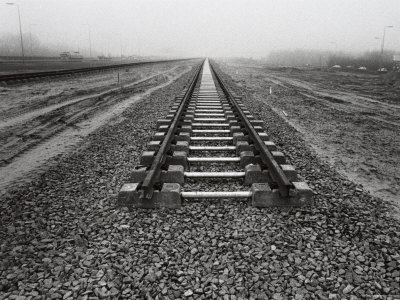 I almost always know the ending to something I’m writing. It usually occurs to me early on, if not right away. I think good endings are important. You want to look back over the book or story and think about what led you there, and you want the important things to have been surprising when they happened but inevitable in restrospect.
I almost always know the ending to something I’m writing. It usually occurs to me early on, if not right away. I think good endings are important. You want to look back over the book or story and think about what led you there, and you want the important things to have been surprising when they happened but inevitable in restrospect.
Knowing the ending helps me enormously. Besides giving me a target of drama, emotion, and event (and these are not necessarily the same ending, yunnerstand), it lets me plant seeds along the way that will bear fruit later on. It gives me foreshadowing and turns of phrase and the kinds of details that mean something new and different on rereading. I like to think that people who reread my work will get more out of it on the next go-round.
The need to know the ending in advance has generally been so important to me that I have often been unable to finish something if I didn’t know the ending. I think I interpret not knowing it as a sign that the book isn’t on rails, bound for some inexorable destination, and that I will be doing some narrative casting-about until I find it.
As it seems intent on doing with virtually all of my writing habits and rituals, AVALON BURNING is proving an exception. I know very clearly what I want to have happened by the end of the book — who ends up where, and for what reasons — but the mechanics of it, the specifics of it, are not there yet. This is in direct contrast most of major scenes and details of the book already existing in my mind. (Plus, I admit, some that get added along the way as events suggest them.)
I often wonder if I should talk about this kind of stuff. It does give readers a certain latitude to raise a hand at some panel and ask me, “So how come the ending of AVALON BURNING sucked so major hard?” But writing isn’t magic, it’s work and a continuously revising process of invention. Maybe revealing it as such takes away from some imagined mystique, or makes it hard to maintain some poetic image of an impassioned artist in a garret working as a conduit for the gods. And you know, sometimes it really is that. But sometimes you make mistakes and sometimes you head down blind alleys. Ultimately what counts is the final product, and having the sense to know when it is the final product and when it isn’t.
For me the fun of writing AVALON BURNING is how different from my usual methods all of this has been. I have a lot of faith in the writer part of me, and I’m not especially worried about him ending the novel in any way but what it should be. Meantime, the newness of my approach on this book has freed me to sit back and enjoy the writing of it more than usual. I’m having fun.